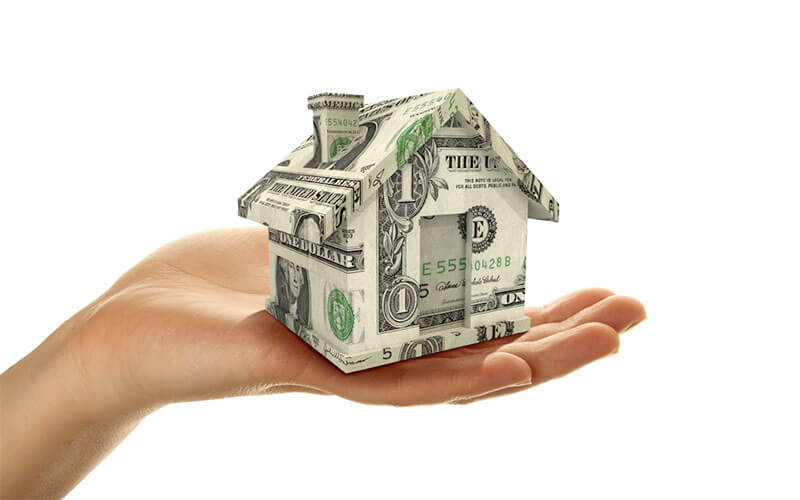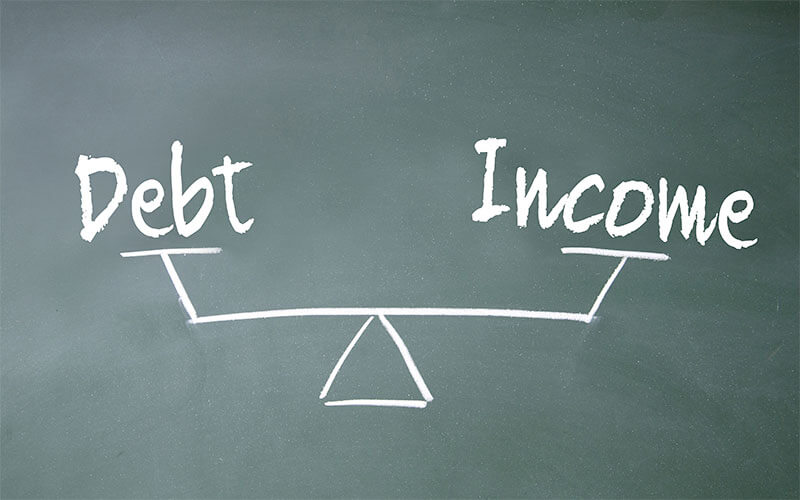How Much House Can I Afford?

Use this calculator to determine how much house you can afford. By entering details about your income, down payment, and monthly debts, you can estimate the mortgage amount that works with your budget.
Affordability calculator
Affordability calculator help
Our mortgage affordability calculator helps you determine what you can comfortably afford to pay based on your personal circumstances. It evaluates the percentage of your monthly income that goes toward existing debts to help identify how much extra you have to spend on a mortgage payment. Here’s the info you’ll need to enter into the affordability calculator:
Include all of you and your co-borrower’s monthly debts, including: minimum monthly required credit card payments, car payments, student loans, alimony/child support payments, any house payments (rent or mortgage) other than the new mortgage you are seeking, rental property maintenance, and other personal loans with periodic payments.
Do NOT include: credit card balances you pay off in full each month, existing house payments (rent or mortgage) that will become obsolete as a result of the new mortgage you are seeking, or the new mortgage you are seeking.
How To Use the Home Affordability Calculator

Buying a new home should be exciting but it should also provide you with a sense of stability and financial security. Living month to month, with barely enough income to meet all of your obligations, the threat of foreclosure looming if you slip up—well that’s the wrong kind of excitement. That’s why it’s so important that you know ahead of time the answer to that very important question, How much house can I afford?
Mortgage Affordability Calculator: How Much Risk?
Most kinds of affordability calculator focus on a single debt-to-income (DTI) ratio. They take the user’s gross monthly income (before taxes) and multiply it by a pre-selected DTI, usually something like 36 percent. From that result, they subtract any other payments like auto loans, credit cards and student loans, and what remains is the maximum house payment — principal, interest, taxes and insurance. However, most personal finance experts believe that even buyers with identical income and debts shouldn’t necessarily spend the same amount on a home. There’s nothing in most affordability calculators, for example, that accounts for payment shock. Payment shock is the amount of a new housing expense divided by the old housing expense. Most underwriters don’t want to see payment shock that exceeds 150 – 200 percent. If a would-be buyer currently rents for $500 a month, it won’t necessarily be easy for him or her to get approved for a mortgage with a $2,000 a month payment. Instead, they might be better off with a more conservative scenario.
Playing Around
Another use for home affordability calculators is seeing how changes in inputs can affect the maximum home price. Suppose the family in the previous example has a $5,000 debt with a $100 a month payment. They can afford a house costing $281,000 to $414,000 at 4.00 percent with $25,000 down. Or they could reduce their down payment to $20,000 and pay off the debt. Which option gets them more house? Answer: Taking $5,000 from their down payment to get rid of the $100 a month expense does increase their purchase price range by more than $10,000. In addition, consumers can use this calculator to see how changes in interest rate and programs affect affordability.
The 36% Rule
In order to avoid the nightmare scenario of buying a house that breaks the bank, you’ll need to figure out a housing budget that makes sense for you. One How much house can I afford? rule of thumb that can be helpful in doing so is the 36% rule, which says that your total debt payments should never add up to more than 36% of your gross (i.e. pre-tax) income. In practice, that means that for every pre-tax dollar you earn each month, you should dedicate no more than 36 cents to paying off your mortgage, student loans, credit card debt and so on. (Side note: since property tax and insurance payments are required to keep your house in good standing, those are both considered debt payments in this context.)
This is more a rule of thumb than a strict limit, but most banks don’t like to make loans to borrowers with bad debt-to-income ratios. Although it’s possible to find lenders willing to do so (often at higher interest rates), the thinking behind the rule is instructive. If you are spending 40% or more of your pre-tax income on pre-existing obligations, a relatively minor shift in your income or expenses could wreak havoc on your budget. Banks don’t like to lend to borrowers who have a low margin of error. That’s why your pre-existing debt will affect how much home you qualify for when it comes to securing a mortgage.
But it isn’t only in your lender’s interest to keep this rule in mind when looking for a house; it’s in yours too. Since lenders tend to charge higher interest rates to borrowers who break the 36% rule, you’ll probably end up spending more on interest if you go for a house that places you beyond that limit. Furthermore, while the difference between the house that eats up 45% of your monthly income and one that only takes 35% is likely not huge, that extra 10% of income can be critical if your financial situation changes (like say your utility payments rise or gas prices skyrocket). With something as important as a house, it’s nice to have a bit of a cushion for when things go wrong.
Some Home Affordability Advice
After all, there is something to be said for the idea of not maxing out your credit possibilities. Here’s some advice for Mary – and the rest of us. If you look at houses that are priced somewhere below your maximum, you leave yourself some options. For one, you will have room to bid if you end up competing with another buyer for the house. As another alternative, you will have money left over for renovations and upgrades just in case the house needs a little work in order to fully transform into your dream home.
Perhaps more importantly, however, you avoid putting yourself at the limits of your financial resources if you choose a house with a price lower than your maximum. You will have an easier time making your payments, or (better yet!) you will be able to pay extra on the principal and save yourself money by paying off your mortgage early.
Reasons to Postpone a Home Purchase
Along the same lines of thinking, you might consider holding off on buying the house. This advice goes for Mark, but it could apply to any of us. The bigger the down payment you can bring to the table, the smaller the loan you will have to pay interest on. In the long run, the largest portion of the price you pay for a house is typically the interest on the loan. In the case of a 30-year mortgage (depending, of course, on the interest rate) the loan’s interest can add up to three or four times the listed price of the house (yes, you read that right!). For the first ten years of a 30-year mortgage, you could be paying almost solely on the interest and hardly making a dent in the principal on your loan.
That’s why it can make a significant difference if you make even small extra payments toward the principal, or start with a bigger down payment (which of course translates into a smaller loan). If you can afford a 15-year mortgage rather than a 30-year mortgage, your monthly payments will be higher, but your overall cost will be drastically lower because you won’t be paying nearly so much interest.
That sounds great, but it’s not always the best option either. If the 15-year mortgage puts you uncomfortably close to your maximum—meaning you won’t have any room in your budget for emergencies or extras—you could always lock into a 30-year mortgage while making a commitment to yourself to make payments the size of the 15-year plan unless there’s a financial emergency. If you go with this plan it’s important to make sure your mortgage terms do NOT include a penalty for paying off the loan early. This is known as a pre-payment penalty and lenders are required to disclose it.
So, should I buy a home?
When it comes to answering the question of How much house can I afford?, it’s important to remember that the mortgage lender is only telling you that you can buy a house, not necessarily that you should. Only you can decide whether you should make that purchase.
Learn More about Affordability and Mortgages
Home Much House Can I Afford?
There is a rule of thumb that says that if you have the capacity to repay the mortgage, you can afford a single-family house that costs up to two …
Income vs. Debt Ratios
As you think about applying for a home loan, you need to consider your personal finances. How much you earn versus how much you owe will likely …
What Will Be Included In My Mortgage Payments?
Your monthly mortgage payment is made up of several components. This housing expense is commonly referred to as “PITI” or principal, interest …
Closing Costs
Below are some of the costs you may incur. Some are one-time fees, while others recur over the life of the loan. When you first apply for your loan, you …




